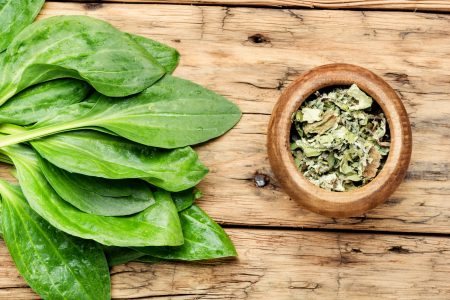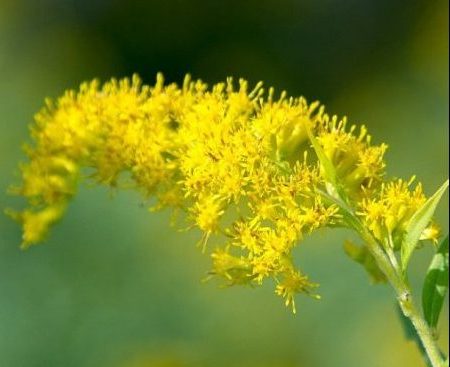There may come a time in anyone’s life where you become wounded but do not have immediate access to a hospital or some sort of medical attention. Perhaps you are out hiking and the trail back is long and arduous, maybe a remote rock climbing expedition has gone horribly wrong and help is further away than you would like. Or, when the SHTF and you are injured during the event.
This can be an intimidating situation if you are unprepared but there are ways in which you can help yourself. One of these ways is by using what nature has to offer and taking advantage of the many plants which are able to help in the initial treatment of wounds.
Top 5 Wound Healing Plants
In this article, we are going to be taking a closer look at the things that mother nature has provided for us and dive a little deeper into which plants are great in a first aid situation when SHTF. All of the plants can be found growing naturally all over the United States and so you can be sure that you will have easy access to some if not all of them in an emergency.

Plantain
In this instance, we are not referring to the species of banana but to a type of weed that can be found all over the country. The plant is easily identified by its veins which run up the back part of the leaf. These veins run in a parallel pattern and always come in odd numbers.
For open wounds, you can simply apply the leaf in order to help draw out any infection. Plantain has many properties that can assist in the treatment of wounds, especially in an emergency situation.
It is not only anti-inflammatory but also anti-fungal, anti-bacterial and a powerful antioxidant, if this wasn’t enough it also helps in the prevention of ulcer formation.
Yarrow
This plant has been used for its medicinal properties for thousands of years and there is a good reason for this. One of its superpowers is that it is incredibly effective in the treatment of burns, this includes sunburn which may be common in a survival situation.
It is also effective when trying to stop bleeding from an open wound and acts as an anti-bacterial. You can simply chew the leaves and then apply the mixture of leaf and saliva to the wound in order to reap the benefits.
To identify yarrow you should look for a plant that has a fern-like appearance with many leaves and small white flowers. It is worth noting that in some cases, the flowers of the yarrow plant may come in a pale pink color.
Calendula
Having a high similarity to the marigold, calendula is another plant that is very useful in the treatment of wounds. The plant is great as an anti-bacterial and is also well known for increasing blood flow, this is perfect when it comes to quickly healing a wound.
This plant has also been praised for its pain-relieving properties when applied directly to the area. You will easily be able to recognize the calendula plant due to its long, straight and colored petals, these petals will usually be either yellow, orange, pink or white.
In the center of the relatively flat flower, there is a single dot that is very distinct and will give away the species easily.

Goldenrod
This yellow flowering plant has been noted for its anti-inflammatory properties which is of course, highly useful when it comes to the treatment of wounds. The plant contains saponin which is a chemical that turns into a soap-like product that is used to treat a wound and for other medicinal purposes.
Goldenrod is also known for being very good at assisting with bleeding. Goldenrod has also been noted to be very effective for pain relief. Interestingly, goldenrod was used by Native American tribes for a variety of different medicinal purposes including hair loss but also as a topical treatment in wound care.
The plant can be identified by its smooth leaves that have jagged edges. The plant can be confused with plants that are poisonous and one surefire way to determine whether what you are seeing is in fact goldenrod is to look at whether the stems branch out if they do it is not goldenrod, the stems of this plant stay in a straight formation.
Aloe Vera
In warmer parts of the USA such as Texas, Florida, and California, you will find the amazing aloe vera plant growing. This plant is famed for being highly useful in a huge variety of ways.
The clear gel which can be found inside the leaves is ideal for applying to a burn as it is super soothing. The plant also contains chemicals that promote collagen production, this, in turn, speeds up the healing process for a wound. It is also known to be a plant that promotes the regeneration of cells which adds to the healing process.
Once the aloe gel has been applied, if you can, you should dress the wound with a bandage in order to prevent infection. On top of all of this, aloe vera is also an excellent anti-inflammatory.
In order to successfully identify aloe vera, you will need to look out for a succulent plant with thick, spiky green leaves. The plant is known to grow with its leaves in a spiral formation.
Conclusion
If you ever find yourself in a situation where you or someone you are with get injured whilst out in nature or in an emergency situation, there is no need to panic. There are plants that have real medicinal value growing all over the U.S.
You may not even be aware of the fact that you might have medical plants growing in your own garden.
In an emergency situation or when the shit hits the fan where you do not have access to a doctor or a hospital, you may have to treat a minor wound or injury in a more natural way. By being able to identify the plants which can assist in would care, you can be confident that you will be successfully able to take on any situation that may arise.

